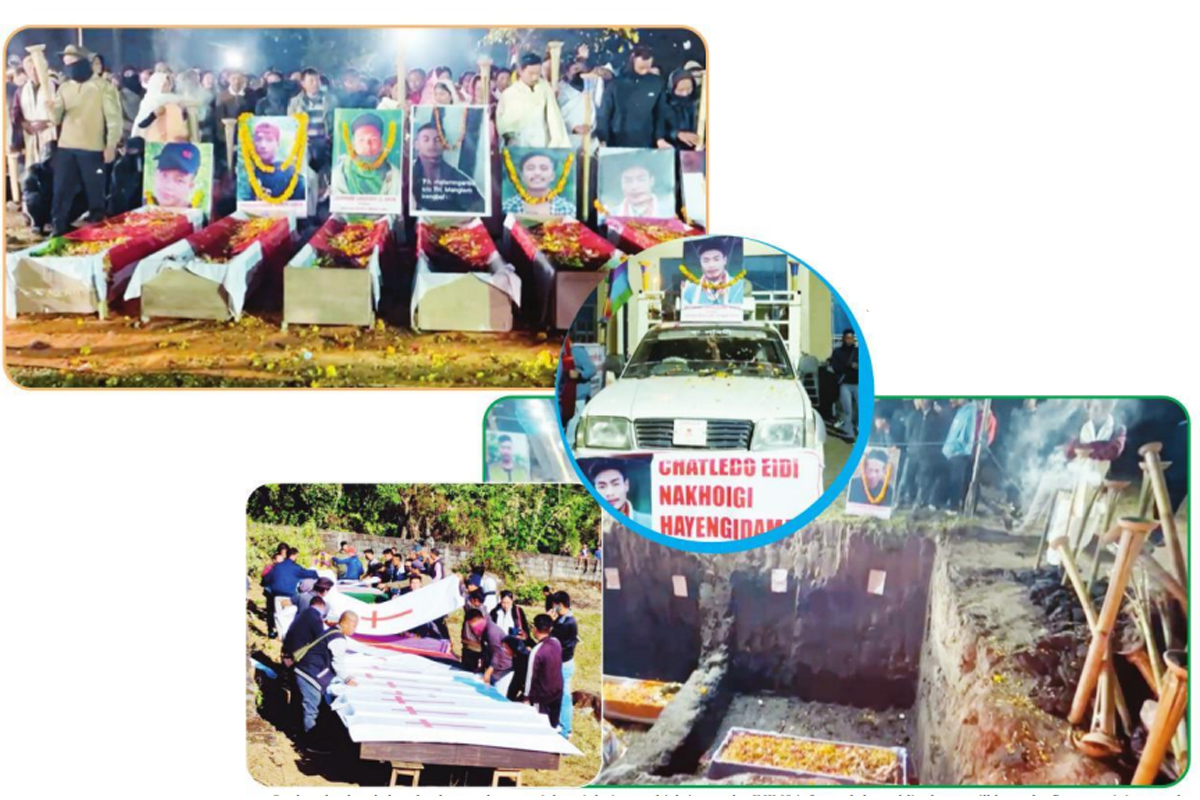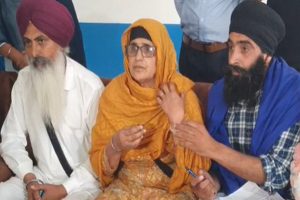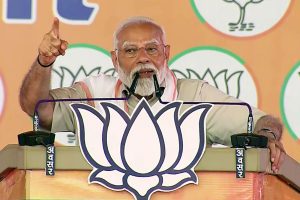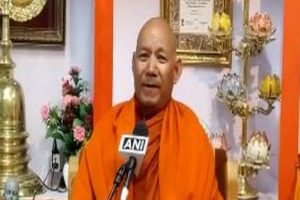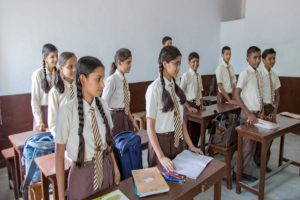It was by late afternoon on the 4th of December that the news began to trickle in that 13 Meiteis had been killed somewhere in a village under Machi Police Station in Tengnoupal district. At first, it was suspected that they were Meitei militants who had made the march back home to lend a helping hand to the Meiteis battling the Kuki militants in the ongoing ethnic strife.
By evening, news began to appear, quoting defence sources, that the incident happened near Lethao Village, 35 kilometres west of Machi Police Station. The reports added that an Assam Rifles post was located 10 kilometres away from the site, and they could only reach it by early evening. It was also reported that 13 people were found dead and no weapons were found on them, and that their identities could not be ascertained at that moment, but the police were on their way and that their identities would soon be ascertained.
The perpetrators of the crime were not known immediately, but that area was dominated by members of the Kuki National Army (KNA) who had recently abandoned their designated camp near Moreh on the Indo-Myanmar border following a crackdown by the Manipur police commandos after the killing of a sub-divisional police officer by a sniper shot fired by the KNA.
It was around midnight when the police recovered the bodies of the 13 and transported them back to Imphal for autopsy at the Jawaharlal Nehru Institute of Medical Sciences (JNIMS) at Porompat in Imphal East, where they were identified by their relatives and family members. By the next day, tension had gripped the entire valley as the dead belonged to various parts of the valley.
Most of the victims were in their teens, including a 16-year-old, and many of them had had their houses burned by the Kuki desperadoes earlier, after the breakout of the KukiMeitei war earlier on 3 May, and one of them was residing in a relief camp meant for internally displaced persons.
The postmortem revealed that all of them had been tortured before being shot at close range.
At least six of the deceased had bullet injuries to their heads. It became apparent that they were not trained insurgents but were new recruits en route to the strongholds across the border in Myanmar for training.
Soon, thousands lined up the streets of the valley to hail the martyrs, lighting candles and torches and shouting slogans like “Long Live Manipur” and “Hail the Brave Sons of Manipur”.
The corteges made a longish journey to their final resting place at Andro, about 25 kilometres from Imphal, where there was a mass burial of all the 13 killed. The killings had come as a big setback to CM Biren Singh, who had recently declared that peace had been restored in the state and was seen busy celebrating the BJP’s victory in three Indian states in the recently held elections.
A grieving mother of one of the deceased said, “Let’s stop listening to the government’s peace messages. While we are shouting for peace, our motherland is sinking into an abyss.”
Then, finally, on the 7th of December, the proscribed People Revolutionary Front, whose armed wing is the dreaded People’s Liberation Army (PLA) of Manipur, broke their silence and issued a press communiqué stating that all 13 who were killed were among the new volunteers who had ventured out to become members of the PLA.
They also accused the Kuki mercenaries, who are funded and armed by the government of India, of having captured them first and, after torture, killing them. It also accused the Centre of utilising the Kuki mercenaries to further their divide-and-rule policy by instigating the Kukis to fight the Nagas in the early 1990s, then the Paites and the Hmars, and now the Meiteis.
They also said that they fully understand the tears of the aggrieved mothers and will avenge their deaths. The RPF also paid a revolutionary salute to all the deceased.
The RPF, which is a signatory to the Geneva Convention, also stated that such acts by the government of India through proxy methods will not go unnoticed and will serve as an impediment to India’s efforts to secure a permanent seat in the security council of the United Nations. On the other hand, there has been a studied silence on the part of the government of Manipur, with no ministers or political bigwigs across all party lines passing a single statement of condolence or condemning the massacre.
The National Human Rights Commission of India had taken cognisance of the crime, registered a suomotu case, and served notices to the chief secretary and the director general of police of Manipur. The NHRC observed that this was the largest single-day killing in the ongoing Manipur mayhem, and prima facie, the loss of lives constitutes a serious issue of human rights violations, which is a matter of great concern and indicates a lapse on the part of the law-enforcing agencies and forces deployed to ensure peace and law and order in the state.
And we have called for a detailed report from the state by issuing notices, which are to be submitted within two weeks.
The report should indicate the status of the FIRs registered in the matter and steps being taken to prevent such lapses, noting that the victims could also be militants. Even as the wailings had not died down, the Assam Rifles, presumably accompanied by the state police, made pre-dawn raids in a cloak and dagger operation and descended on the mortuaries of the Regional Institute of Medical Sciences (RIMS) and JNIMS and whisked away 60 dead bodies belonging to the Kuki community who were killed beginning the 3rd May outbreak of violence in the state and had been lying on the floors of these morgues.
They were soon loaded into choppers, flown away to Churachandpur and Kangpokpi, and handed over to the CSOs and relatives there. The bodies of four Meiteis killed and lying in the Churachandpur Hospital were also brought to Imphal and handed over to their relatives. Trouble almost erupted when the director of the JNIMS informed the public that neither he nor any of his subordinates were informed about the taking away of the dead bodies, and no protocol was followed since it was done clandestinely. The same was echoed by the authorities of the RIMS.
Apparently, the Assam Rifles were fearing the wrath of the Supreme Court of India, which had recently ruled that the bodies should be handed over to their relatives after proper verification and protocols were observed. But the apex court would not have approved of the manner in which it was done.
This was reflected when the Solicitor General of India, Tushar Mehta, appearing on behalf of the Government of India and the Manipur Government, informed a half-day-long sitting of the Apex Court in a bench headed by the CJI, DY Chandrachud, stating that most of the unclaimed bodies in the mortuaries of Manipur belonged to immigrants from across Myanmar. The question is, then, how could they have been simply handed over to the Kukis like commodities? But for the moment, the Assam Rifles can simply say their mission has been accomplished. In the midst of all these happenings, the Biren Singh government fully lifted Prohibition from Manipur, enforced since 1 April 1991.
On 15 December the state cabinet gave the nod for the establishment of Manipur State Beverages Corporation Limited (MSBCL), which will oversee the sale, manufacture, production, sale,consumption,import, export, and transportation of beverages. The MSBCL will have the finance minister as the ex-officio chairman, and other members will consist of the chief secretary, finance secretary, health secretary, and others. Subsequently, notices for the withdrawal of liquor prohibition in Manipur were published in the state gazette.
Cries by pro-prohibition groups fell on deaf ears as Biren Singh decided to push it through.
The message seems to be that you should never mind about peace in the state or whether or not you are getting booze to drink.
The writer is a senior journalist at The Statesman.

